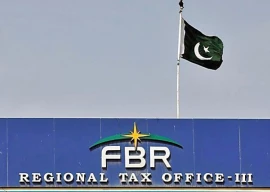
Pakistan has rejected Afghanistan’s demand for payment of transit fees in the form of gas under the $7.6 billion Turkmenistan-Afghanistan-Pakistan-India (TAPI) gas pipeline project; but officials from the two countries are expected to make some headway on the settlement of the issue in New Delhi, where they will be joined by Indian officials during an energy conference scheduled from March 22 to March 27. During the summit, Pakistani officials will also negotiate with their Indian counterparts on the export of oil from India.
Petroleum Secretary Ijaz Chaudhry said that Pakistan and India had not finalised any arrangements as yet for the export of oil from India. “No volume and price of oil has been finalised yet,” Chaudhry said. However, he said a committee was working out modalities and the two countries would negotiate a deal during sideline meetings in New Delhi. He left for India on Wednesday to attend the conference.
Sources in the ministry of petroleum said that Afghan and Pakistani officials had earlier discussed three different proposals on the transit fee: fee in cash or kind; fixed fee in dollar terms on the volume of gas pumped from Turkmenistan; and, linking the transit fee to the per kilometre length of the gas pipeline.
“Afghan authorities insisted on getting paid in gas equalling the value of the transit fee, but we have rejected their demand,” a senior official of the petroleum ministry said, adding that Pakistan has made it clear to Afghan officials that it will pay transit fee in cash.
“Pakistan, Afghanistan and India will now hold meetings in New Delhi to finalise a uniform transit fee,” the official added. Under the proposed plan, Pakistan wants to pay Afghanistan from the transit fee it collects from India, he said.
Pakistan also wishes to settle a dispute on the review of gas prices during the conference. Pakistan wants to review gas prices every 3 years – keeping in view the pricing trends of markets in Pakistan, Turkmenistan, Afghanistan and India. “But Turkmenistan wants to review gas prices after ten years, in line with pricing trends in international markets,” the official added. After Pakistan and Turkmenistan agree on a gas price review mechanism, a Gas Sales Purchase Agreement will be signed.
In addition, Pakistan and India had earlier decided to approach Turkmenistan for a share in the development of gas fields during Petroleum Minister Dr Asim Hussain’s visit to India in January. Under the agreement, Pakistani public-sector gas exploration companies – like the Oil and Gas Development Company – may enter into joint ventures with Indian gas companies to develop gas fields in Turkmenistan.
Published in The Express Tribune, March 22nd, 2012.
COMMENTS (5)
Comments are moderated and generally will be posted if they are on-topic and not abusive.
For more information, please see our Comments FAQ









1730379446-0/WhatsApp-Image-2024-10-31-at-17-56-13-(1)1730379446-0-270x192.webp)

1735025557-0/Untitled-(96)1735025557-0-270x192.webp)











@Khan: Because according to State Bank of Pakistan, by 2016 Pakistan will face gas shortage just like power shortage now. To meet that challenge we need to start building the pipelines which might take 3-4 years. If we do not act now, then be ready for gas problem as well. By the way, gas is also used to generate electricity in thermal stations.
@Khan: Look Pakistan is so interested in gas because if we have gas we will get rid of the energy issue. If u look Pakistan has installed Gas Powered Power Stations but they dont get gas. Most of these Power Stations dont even run on full capacity while as many dont even run. So if Pakistan gets gas then all Gas power plants will run on full capacity and we will by far get rid of the electricity crises. So basically Natural Gas is the solution to our electricity crises :)
The gas shortage isn't as severe as the electricity shortage due to which from past 4-5 years every one is without electricity in scorching heat throughout the country. I can't understand why is Pakistan pushing so hard on gas pipelines when our urgent need is creating dams and power plants for electricity generation. While If we have to import gas as well then we have to do it via IPI project which doesn't require much infrastructure as we already receive most of our gas from Balochistan thus its only a matter of connecting them to Iranian side .. but obviously that should only work if Iran has no international sanctions on them otherwise its a lost cause.
Wasting time on a non-feasible project.